Class Spring 2019

Tyler Ball is a Master’s student in the Maritime Studies program here at East Carolina University. His research focuses on site formation processes and underwater environmental impacts on shipwrecks. Tyler received his bachelor’s degree in Anthropology with a minor in History from Marshall University. Tyler spent most of his early life fascinated with the ocean. Later on, he began to find history just as interesting and decided to find a career that combines the two fields. Aside from school and work, Tyler enjoys working on artistic projects, and exploring new places. His term paper is on the evolution of site formation on cannon pile sites.
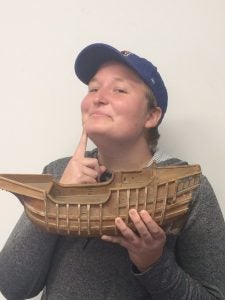
Anna “Slim” D’Jernes was born in Chapel Hill and grew up just outside Raleigh, North Carolina. She earned her Bachelor’s degree in English and Women’s Studies from Appalachian State University in Boone, NC. Anna hopes to combine her love of salty sea tales and gender theory in order to research constructions of gender and sexuality in seafaring communities.
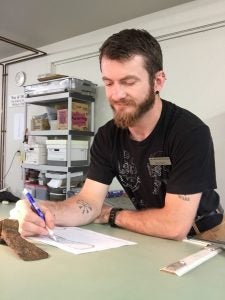
Paul Willard Gates is a first year student in the Maritime Studies Program. Gates grew up in rural Pennsylvania exploring the ruins of an eighteenth century farm on his family’s land. His fascination with exploring old structures and finding artifacts was influential in his personal and educational development in history and archaeology. It wasn’t until after he finished his undergraduate degree that he became fascinated with maritime archaeology through the Lake Champlain Maritime Museum where he worked as a conservation technician and an archaeological diver for the Marine Research Institute. His interests include blacksmithing and coppersmithing along with diving, bicycling, and hiking. Currently, he works with his siblings to manage a family non-profit organization. Later in life, he plans to move back to Vermont and open a professional community forge. He holds a B.A. in History and M.S. in Historic Preservation from The University of Vermont.
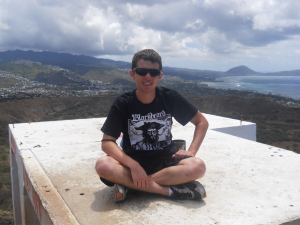
George Huss As an Air Force brat, he’s always had trouble telling people where he’s from but if asked, he would claim Honolulu, HI as his home. George graduated from the University of Hawaii at Manoa with a Bachelors of Arts in Anthropology, Minor in History and Marine Option Program Certificate in Maritime Archaeology. While at UH, George worked under Dr. Hans Van Tilburg who is the Maritime Heritage Coordinator for NOAA’s National Marine Sanctuaries in the Pacific. George participated in UH’s annual Maritime Archaeology Survey Techniques Course where he helped survey a supposed Landing Ship Medium. Following the survey, he coauthored the site report and was able to narrow down the LSMs identity. After he graduated, he moved to North Carolina where he worked in cultural resource management. His thesis focuses on studying the influences of North Carolina’s dolphin fishery. In his spare time, George serves in the USCG Reserves as a Marine Science Technician. Outside of the Coast Guard, he enjoys scuba diving, camping and traveling.
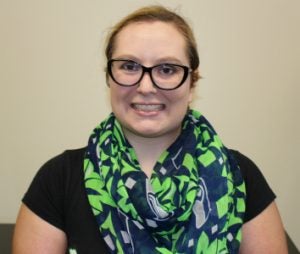
Janie Knutson is working on the second year of her master’s degree at East Carolina University. She received her bachelors in Anthropology at Eastern Washington University and minored in History. Her professional interests include the preservation and protection of World War I sites and the history of U-boats. Her thesis is on creating a 3-D battle field of the naval activities off of North Carolina during the First World War. Janie’s term paper focuses on clay pipes in a maritime context.
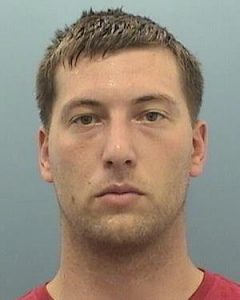
Stephen Lacey My primary research is in 18th century weapons, specifically cast iron grenades. Other types of ordnance, shoulder arms, and fire ships are of interest too. Essentially these weapons see drastic changes during this time and as a result are adapted to suit an array of purposes. Warfare, resistance, technology, economics, logistical organization, public memory, and experimental archaeology are major themes that influence my research goals.
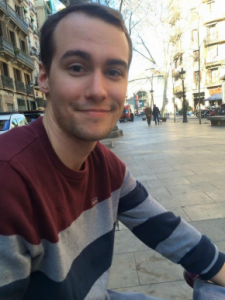
Connor McBrian is in the Maritime Studies Program. He graduated from Iowa State University in 2013 with a bachelor’s degree in history, where he focused on studying Chinese Cold War history and Roman maritime history. He discovered maritime archaeology after being introduced to it by his professors and friends and quickly moved to Washington, DC to gain experience in cultural resource management at the federal level. Connor interned for NOAA’s Office of National Marine Sanctuaries, studying Civil War wrecks off the coast of the Outer Banks, and the Navy’s Underwater Archaeology Branch, where he conducted archival and historical research on World War II wreck sites. His research interests are focused on industrial maritime history and developments in steam power as well as cultural resource management. Connor enjoys going to hockey games, playing bocce, billiards, kayaking, rock climbing, and scuba diving when he can.
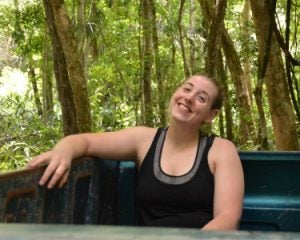
Steph Soder is currently enrolled in the Maritime Studies Graduate Program. After completing an underwater research expedition in Cambodia and bioarchaeology digs in Ireland and Belize, she decided to focus on maritime archaeology. Her research plans include warfare in the Pacific during the 20th century, while also studying osteology further. In her spare time she likes to go camping, hiking, and (of course) diving. She received her Bachelor’s degree in Criminal Justice with a concentrated minor in Anthropology from York College of Pennsylvania. Her term paper for Maritime Material Culture is on the Tang collection.
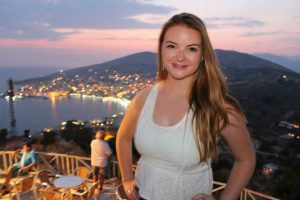
Annie Wright is a Master’s student in the program in Maritime Studies at East Carolina University. She attended Transylvania University in Lexington, Kentucky, where she graduated with a Bachelor of Arts in Anthropology and a minor in Environmental Studies. Annie had the good fortune of working on several underwater archaeology projects in Spain, Honduras, Albania, Croatia, and Montenegro while at Transylvania, as well as spending a semester studying marine resource management in the Turks and Caicos Islands with the School for Field Studies. Her Masters’ thesis research focuses on comparing experimental underwater structured light technology with photogrammetry on a variety of different shipwrecks as a tool to promote cultural heritage tourism. While at ECU, Annie has participated in projects in Florida, Michigan, Costa Rica, and North Carolina. She is an AAUS Scientific Diver and an SDI Open Water Scuba Instructor. Her term paper for Maritime Material Culture focuses on the development of propeller technology.
